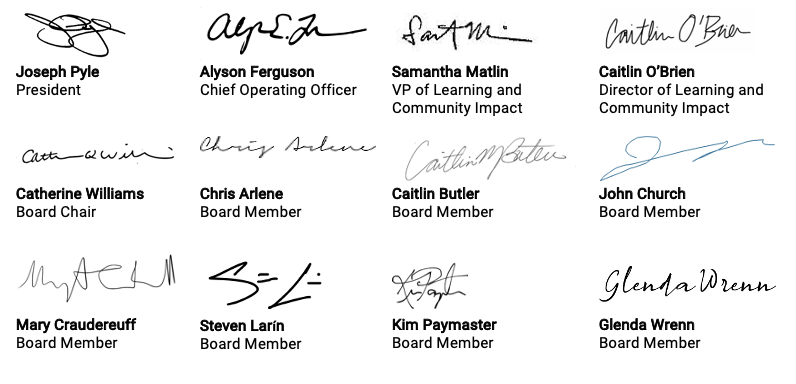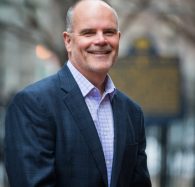Get Involved

 Become a Thought Partner
Become a Thought Partner
Partner with us to produce thought leadership that moves the needle on behavioral healthcare.
 Other options to get involved
Other options to get involved

Thank you!
We received your information and will be in contact soon!
Get Involved

 Grantmaking
Grantmaking
We fund organizations and projects which disrupt our current behavioral health space and create impact at the individual, organizational, and societal levels.
 Participatory Funds
Participatory Funds
Our participatory funds alter traditional grantmaking by shifting power
to impacted communities to direct resources and make funding decisions.
 Special Grant Programs
Special Grant Programs
We build public and private partnerships to administer grant dollars toward targeted programs.
 Program Related Investments
Program Related Investments
We provide funds at below-market interest rates that can be particularly useful to start, grow, or sustain a program, or when results cannot be achieved with grant dollars alone.
Get Involved

 Tia Burroughs Clayton, MSS
Tia Burroughs Clayton, MSS
Learning and Community Impact Consultant
Add some text here
 Alyson Ferguson, MPH
Alyson Ferguson, MPH
Chief Operating Officer
Contact Alyson about grantmaking, program related investments, and the paper series.
 Samantha Matlin, PhD
Samantha Matlin, PhD
Senior Learning & Community Impact Consultant
Contact Samantha about program planning and evaluation consulting services.
 Caitlin O'Brien, MPH
Caitlin O'Brien, MPH
Director of Learning & Community Impact
Contact Caitlin about the Community Fund for Immigrant Wellness, the Annual Innovation Award, and trauma-informed programming.
 Joe Pyle, MA
Joe Pyle, MA
President
Contact Joe about partnership opportunities, thought leadership, and the Foundation’s property.
 Bridget Talone, MFA
Bridget Talone, MFA
Grants Manager for Learning and Community Impact
Add some text here
It has been a year since the murder of George Floyd sparked global protests that compelled us to grapple with our nation’s enduring racism and white supremacy. In the immediate aftermath of Floyd’s death, individuals, companies, and organizations released statements that expressed their horror at the murder committed by police caught on video, and stated their commitment to anti-racism in their professional and personal lives. We are one of those organizations.
These statements are meaningless without action. In our statement, we recognized that we must be accountable for how we are working to dismantle racism and its construct – the systems and institutions that benefit from white supremacy and continued anti-Black racism. We cannot just make the statement, but practice and live the values that led us to make it.
This past year has challenged our staff and board to re-think our work and our practices. We have engaged in deep dialogue with each other and with our partners. Questioning ourselves, our priorities, and our work has been necessary in shifting our programming to reflect our commitment to dismantling racism.
We offer the following to hold ourselves accountable in our THINK, DO, and SUPPORT work. We do this with a full understanding that this journey is never ending, and we must remain vigilant and strive to do more.
We recognize that we must focus on listening and learning first. We have, both individually and as a team, engaged in numerous programs that have helped us to learn and grow alongside our grantees. Participating in programs like the Barra Foundation-sponsored series, Breathing Room featuring racial trauma expert, Dr. Kenneth Hardy, and the Haverford College Library-sponsored, Calling In with Dr. Loretta Ross have opened our minds and provided us with new tools for addressing racial equity and justice.
We have recognized the need for our Think Bigger Do Good Policy Series to explicitly discuss the intersections of racism and behavioral health. This year, we’ve released two papers that specifically focus on such intersections:
- COVID-19, Structural Racism, and Mental Health Inequities: Policy Implications for an Emerging Syndemic by Ruth S. Shim, MD, MPH and Steven M. Starks, MD, FAPA
- Systemic, Racial Justice-Informed Solutions to Shift “Care” From the Criminal Legal System to the Mental Health System by Sarah Vinson, MD and Andrea Dennis, JD
Our goal is that each paper will explore how principles of racial equity and justice can inform specific policy recommendations. We still have a long way to go in this effort and know that diversifying the pool of authors and advisors is an important step.
We have committed ourselves to being stronger advocates by speaking up and out about racial injustice. By writing pieces like Systems transformation could have saved Daniel Prude’s life, we hope to lend our voice to calls for much-needed change. Following the killing of Walter Wallace, Jr. at the hands of Philadelphia police, we sent letters directly to the Mayor and other city leaders with a plea to reform our mental health crisis system. Our conversations with city leaders are ongoing.
The RISE Partnership, an initiative which aims to strengthen the effectiveness of nonprofit organizations in Greater Philadelphia and Southern New Jersey, has explored the ways in which evaluation practices value white dominant norms and minimize Black and Indigenous cultures. The consultant team has modified RISE trainings to promote anti-racist evaluation practices.
Our team of RISE consultants, who work closely with participating organizations, has grown in size and is increasingly diverse. The inclusion of more divergent voices enhanced RISE programming and allowed us to build more open and honest spaces to discuss what organizations are facing and to share our views publicly.
We have asked organizations applying to the RISE Readiness component to articulate their commitment to diversity, equity, and inclusion in their work, which in turn informs our coaching and technical assistance.
We have created and implemented the use of a Race and Culture Reflection Tool drawing on the Center for Disease Control’s (CDC) framework for culturally competent evaluation. The tool poses critical reflection questions for teams at each stage of evaluation.
We adapted our evaluation and consultation services to the Same Day Work and Pay Program to include questions on experiences of racism and to highlight the systemic barriers for people experiencing homelessness who want to work.
As funders, increasing our investments in organizations that serve and are led by Black, Indigenous, and people of color (BIPOC) is one of the most important things we can do to support the racial justice movement. We are now tracking demographics of grantees and have specific goals for diversifying our grant portfolio using guidance from the D5 Coalition. In fiscal year 2021, roughly half of our grantees were organizations led by or had a majority of its C-suite identify as a Black, Indigenous, or people of color, compared with less than a third in the previous year. These grants accounted for 40% of our total grants budget. Board membership in more than half of these organizations is composed of more than 40% Black, Indigenous, and people of color, as is the staff. Almost 80% of our FY21 grantees work with Black, Indigenous and people of color. We will continue to increase our investments in BIPOC communities and leadership, and will work to ensure that all organizations we support have a clear, public commitment to advancing racial equity and justice.
Our Board of Directors is committed to continuing to spend beyond the minimum five percent payout requirement for private foundations by increasing our grants budget.
Addressing the power dynamics inherent in the grantee/funder relationship has long been important to us. Our commitment to participatory grantmaking, in which organizations and communities have ownership in grant decisions, began with the Community Fund for Immigrant Wellness and has extended to investments in programs like the COVID-19 Prevention and Response Fund and the Kensington Community Resilience Fund.
Our new Policy Meets Practice grant program focuses solely on grassroots, BIPOC-led organizations and aligns our local grantmaking with the Think Bigger Do Good paper, COVID-19, Structural Racism, and Mental Health Inequities: Policy Implications for an Emerging Syndemic. Grantees represent diverse organizations that are deeply embedded in their communities, addressing issues at the intersection of the three pandemics discussed in the paper.
The Foundation, as a part of its broader impact investing strategy, has more formally established a Program Related Investments (PRI) program, which provides funds at below-market rates to start, grow, or sustain a program. Our Board of Directors has committed significant assets to the PRI program and will continue to grow it.
As a private foundation, we must also consider how we invest our endowment to reflect our values. For years, our investment strategy has been rooted in the Foundation’s Quaker values by screening out 100% of harmful investments such as tobacco, alcohol, gambling, weapons, for-profit prisons, and more. We also recognize the importance of investing locally by creating a regional fund at Aperio and supporting The Reinvestment Fund. Currently, our Board of Directors is developing a process to benchmark the demographics of the Foundation’s money managers and move towards a more racially diverse portfolio.
Our Board of Directors has worked to build a more diverse and inclusive team. They have onboarded new members from diverse backgrounds with the specific expertise and perspectives needed to carry out our commitments to equity, including participatory grantmaking, policy and advocacy, and moving toward a more racially diverse investment portfolio. The Board has worked collectively to enhance governance structures to ensure that all voices are heard.
The Scattergood Staff developed new internal policies through a participatory process in which all staff members played a role. The team will continue to shape these policies to ensure that our workplace is inclusive and equitable. We recognize that our team has a long way to go to improve diversity within our organization and have developed hiring policies that will guide our process.
—
We share these developments with the understanding that we must be accountable for how our work embodies anti-racist principles. We have a long way to go and will remain resilient as we encounter any stumbles in our journey. We look forward to working with our philanthropic, non-profit, government, business, and civic partners to improve transparency in our collective work toward advancing racial equity and justice.
Above all, we strive to be inclusive partners who thoughtfully reflect and make course corrections as necessary. We are honored to learn alongside our grantees and other partners in striving to shift the paradigm and practice for behavioral health, and recognize the unique spark and basic dignity in every human.

We are accountable to you. Please contact Joe Pyle, president, at jpyle@scattergoodfoundation.org or 267-519-5354 if you would like to talk about the above statement.

















